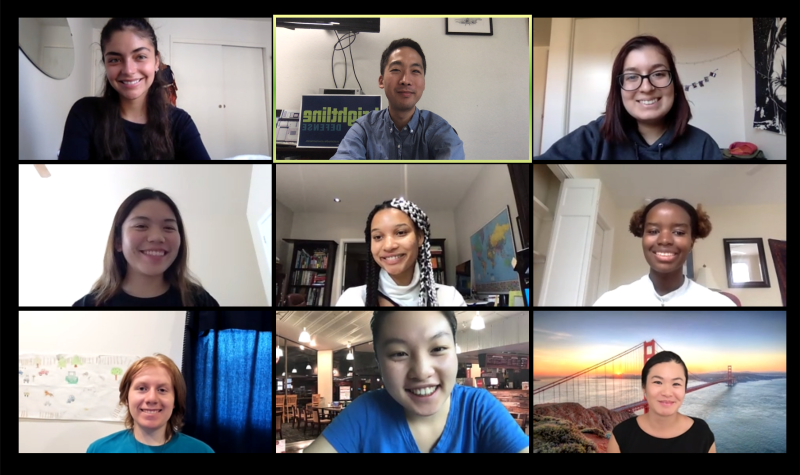In URBANST 164: “Sustainable Cities,” students work directly with community partners to learn about building sustainable cities with an emphasis on addressing issues of equity, gentrification, housing and transportation.
The four- to five-unit course, offered in the fall quarter, is taught by Deland Chan ’07 M.A. ’07, an urban studies professor and a commissioner on San Francisco’s Planning Commission. As the director of Community Engaged Learning and co-founder of the Human Cities Initiative in Stanford’s Urban Studies Program, Chan teaches project-based courses that integrate service and focus on sustainable cities and human-centered design.
Chan, who has been teaching URBANST 164 for seven years, said “one of the highlights of this class is that students are getting hands on, on-the-ground experiences and not just learning about sustainability theoretical book setting, but actually talking with key members really engaging with real-world issues.”
Maya Green ’24 said that she chose to enroll because the opportunity to make a direct impact is integrated into the course. Green said she liked the “idea of learning and then immediately doing something with that knowledge, as opposed to the traditional idea of college [where] you’re learning things, learning things, and then in four years, you’ll maybe use some of that knowledge.”
This quarter, students worked in cohorts with one of five community partners, including unBox, an organization co-founded by Isabelle Foster ’18 M.A. ’19 and Charlie Hoffs ’22 that aims to reduce food insecurity. The cohort at unBox worked on an initiative that helps individuals access Supplemental Nutrition Assistance Program (SNAP) resources. By contributing to an online guide compiling SNAP resources, the students sought to make SNAP online purchasing more equitable and accessible during the COVID-19 pandemic.
Some students worked with the City of Milpitas to provide grants to small businesses. In August, the Milpitas Economic Development and Trade Commission approved a Microenterprise Grant Program to distribute $5,000 each to 38 small businesses impacted by COVID-19. The City of Milpitas cohort researched the program and its community impact. They presented an evaluation to the commission at its Nov. 9 meeting.
Another cohort supported Brightline, a San Francisco-based non-profit which provides air quality monitoring in low-income communities. Students worked with executive director Eddie Ahn and program coordinator Daniela Cortes to bolster community-driven outreach by creating promotional and educational resources on air quality science using Brightline data, according to Cortes. In doing so, Cortes said the team created a data report template that will be distributed to policymakers and community members.
Cortes said the students’ creativity was an important asset in helping the Brightline team continue with community organizing and outreach during the COVID-19 pandemic. Despite the limitations of virtual learning, the students “still managed to really connect with our work and our mission,” Cortes said.
Cortes said she hopes that the exposure to practical sustainability in an urban setting was “as rewarding” to the students “as it is for us and for the communities.”
“They’re not only talking about the theories of urban sustainability but they’re working hands-on, on a project that puts forth those theories, … they can see how everything looks a little bit different when it’s put in action,” Cortes said.
Green, a member of the Brightline cohort, said that she was initially intimidated by the Brightline team’s focus on data.
“I don’t come from a strong data analysis background and I was afraid I’d feel a little out of my depth,” she said.
However, when she discovered that a significant component of the team’s work was creating outreach and educational materials, she found that her writing and communication skills equipped her to support the team. As a non-expert, she said she felt prepared to explain the data collected by the Brightline project in an accessible way.
“The whole goal is making air quality data accessible to people without data backgrounds, accessible to ordinary community members who are breathing in air and deserve to know what they’re breathing in,” Green said.
Green said most of the team had offered to continue to help with the project through winter break, and she hopes to integrate lessons from the class into future endeavors.
Students also worked with the Anti-Eviction Mapping Project to document evictions in the Bay Area, as well as the Stanford Future Bay Initiative to conduct community-based research in North Fair Oaks, San Mateo.
The cohorts will all be making final presentations on Nov. 18 that are open to the public.
Contact Kaushikee Nayudu at knayudu ‘at’ stanford.edu and Sandi Khine at sandiwkhine ‘at’ gmail.com.
